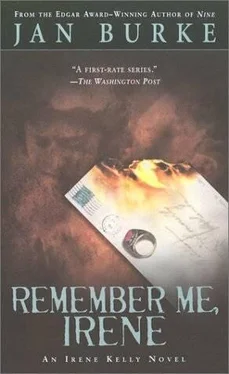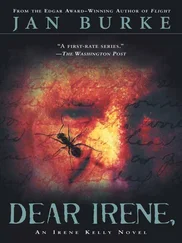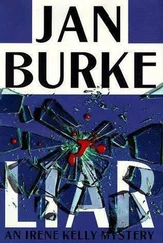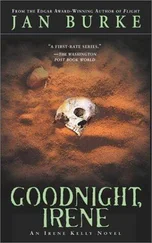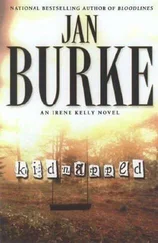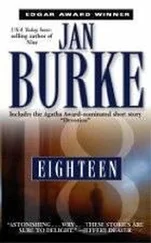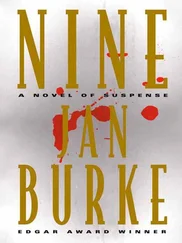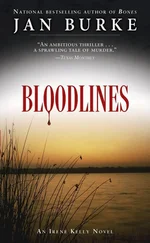Paramedics arrived, and at last we stood and moved away. I turned to see that only two of Andre’s friends were still there: Roland Hill and Keene Dage. Keene said, “If you need me, I’ll be in the bar.”
Roland lifted an eyebrow, then said, “Really? Well, I don’t suppose I’ll need you this evening. We can talk about our business tomorrow.” He nodded toward me on his way out, cool as the shady side of an iceberg.
Frank had an arm around Jerry’s shoulders, and talked to him as they followed the paramedics outside. I was left standing alone in the room. I had that wobbly knees feeling that sometimes come after the adrenaline leaves your body, so I sat down for a moment.
I wondered how hard Lisa would take it if her father died. There had never been much affection between them, but that wouldn’t mean that she still didn’t hope for his approval. Jerry-well, Jerry would probably be crushed. I didn’t wish that kind of suffering on him. And even though Andre was a genuine shitheel, I didn’t wish pain or death on him, either. I considered the fact that I had never really known Jerry, who was away at college when I was dating Andre, and that Andre was all but a stranger to me now. They might have changed over the years. Might have. Seemed unlikely in Andre’s case.
Had something upset him this evening, something besides seeing me? I didn’t for a moment believe I meant enough to him-good or bad-to give him a heart attack. I looked around the table.
Most of the dinner dishes had been cleared; it appeared that the meal had been at the coffee-and-dessert stage. I got up and slowly walked around the table, but nothing of importance had been left behind. Even if I had known who was sitting where, all I would have learned was who drank his java black and who took cream and sugar. There was no point in sticking around. I left the room.
Keene Dage was at the bar, doodling on a cocktail napkin.
“What are you having, Keene?” I asked, sitting next to him.
“Just finished a club soda,” he said, standing up. “Not much of a headline, is it?”
He walked off.
I waited until he was out of sight, nabbed his cocktail napkin, and left enough cash to cover our bill before hurrying out to follow my quarry. A cold wind made me hold my coat around me with both arms as I stepped outside. I didn’t see Frank or Jerry, but Keene Dage was waiting for the valet parking attendant.
I called out a greeting.
He stared stonily ahead.
“Now, Keene, this just isn’t like you. You’ve never been rude to me.”
Keene Dage was a big, rough-hewn man, and even at seventy he looked like he could build a skyscraper with his bare hands. He had been in the management end of construction for decades before he retired, but he had come up the hard way and hadn’t forgotten it.
“Goddammit, Irene,” he said, shaking his head. “Go back inside. You look like you’re freezing your ass off.”
“I can take it if you can, old man.”
He laughed, long and hard-much longer and harder than my remark called for, but it probably afforded him the kind of release that club soda won’t provide. “Still full of piss and vinegar, I see,” he said, wiping his eyes.
“Tell me about your dinner meeting, Keene.”
The levity was gone. “Forget all about this. Just forget it. It was a private dinner. Allan’s retired. Until Selman became ill, we were just spending an evening thanking Allan for his service to the city. A sort of farewell for Allan, that’s all.”
“Somehow I don’t imagine Allan will have to make a lot of last-minute, urgent calls when it’s time for his going-away party. When that really happens, you’ll have a little more time to plan a trip in from-where is it now?”
He fidgeted with his tie, loosening it. “Fallbrook.”
“Right. You’re growing avocados now.”
“I’ll send you a box of them next time we pick them. Now here’s my car.”
“Come on, Keene. You can do more for me than this. This isn’t about Allan. You aren’t really all that fond of Allan.”
He had started to tip the valet, but now he paused, still holding the cash in his hand, the wind whipping the bills as the valet looked at them longingly.
I glanced at the valet, and Keene paid him. When he was out of earshot, Keene said, “Where the hell-when did you ever hear of me saying an unkind thing about Allan?”
“Never. You were doing business here, and you needed Allan, and you were too smart to go around saying you didn’t like his style. But I’ve always sensed it. I even mentioned it to O’Connor.”
“O’Connor’s dead,” he said, getting into the car.
“Well, yes, Keene, I certainly know that O’Connor is dead. When you work with a man for over a dozen years, you notice such things. This is not something I said into a Ouija board. I talked about it with him when he was alive. You haven’t been in town for a few years now. This was before you left, before O’Connor died. He agreed with me-there was some kind of tension between you and Allan.”
He hesitated. “So your old friend talked about me, eh?”
“Yes. He liked you, Keene. Said you and Corbin and Ben were the only honest men in that bunch who had worked on redevelopment in the 1970s.”
Keene looked away for a moment, then turned back to me. “O’Connor was wrong,” he said, and closed the car door.
I thought he would drive of, but he rolled down the window. “Sorry, Irene, guess I’m rude after all. Hope you don’t take this personally. It’s not about you.”
I pulled out a business card.
“I sure as hell don’t want to take that thing from you,” he said. “I’ve got to get back home. Long drive. I’ll be making it again in a few days.”
“Why?”
“Ben’s funeral. You going?”
“Yes.”
He frowned. “Don’t come up to me and talk to me there, okay? I’ll send you a box of avocados.”
He drove off.
O’Connor was wrong, Keene said. About Keene’s dislike of Allan Moffett? Or about his honesty?
Frank wasn’t in the restaurant, so I burrowed into my coat and walked around to the parking lot in the back. The sky was darkening, but we had parked near one of the parking lot lampposts, and I could see Frank sitting in the Volvo. As I drew closer, I saw that he had his arms folded over the top of the steering wheel, his forehead resting on them. He didn’t look up when I got in the car.
“Are you all right?” I asked.
“No,” he said.
It hit me, then. I reached over and placed my hand over his. “Thinking about your dad?”
I heard him let his breath out, a long sigh. He took my hand, held it tightly as he leaned back in his seat. His face gave me the answer before he said, “Yes.”
Frank’s father had a heart attack three or four years ago; Frank was with him shortly before he collapsed. Although Frank hurried back into the room and did CPR, his father had died.
For a long time, we just sat in that parking lot, holding hands, Frank looking out into the night. Rain began to fall. I watched the reflections of the rivulets on the windshield move across his face.
“You never finished telling me that story,” I said. “The one about the man who didn’t park in his garage.”
“No, I didn’t, did I?” he said, and then a look of mild amusement crossed his face. “We waited until the guy came out of his house, and my partner asked him, ‘Could we see the garage?’
“‘Sure,’ he says, ‘no problem.’ He opens the garage door, and the entire floor of the garage is red.”
“Blood?” I asked.
Frank shook his head. “Paint. The guy has painted the entire floor of the garage. The exterior of the house is cracked and peeling, but he’s painted his garage floor. When my partner comments on this, the guy says, ‘Yeah, well, I’m gonna paint the whole house, I just started here.’”
Читать дальше
